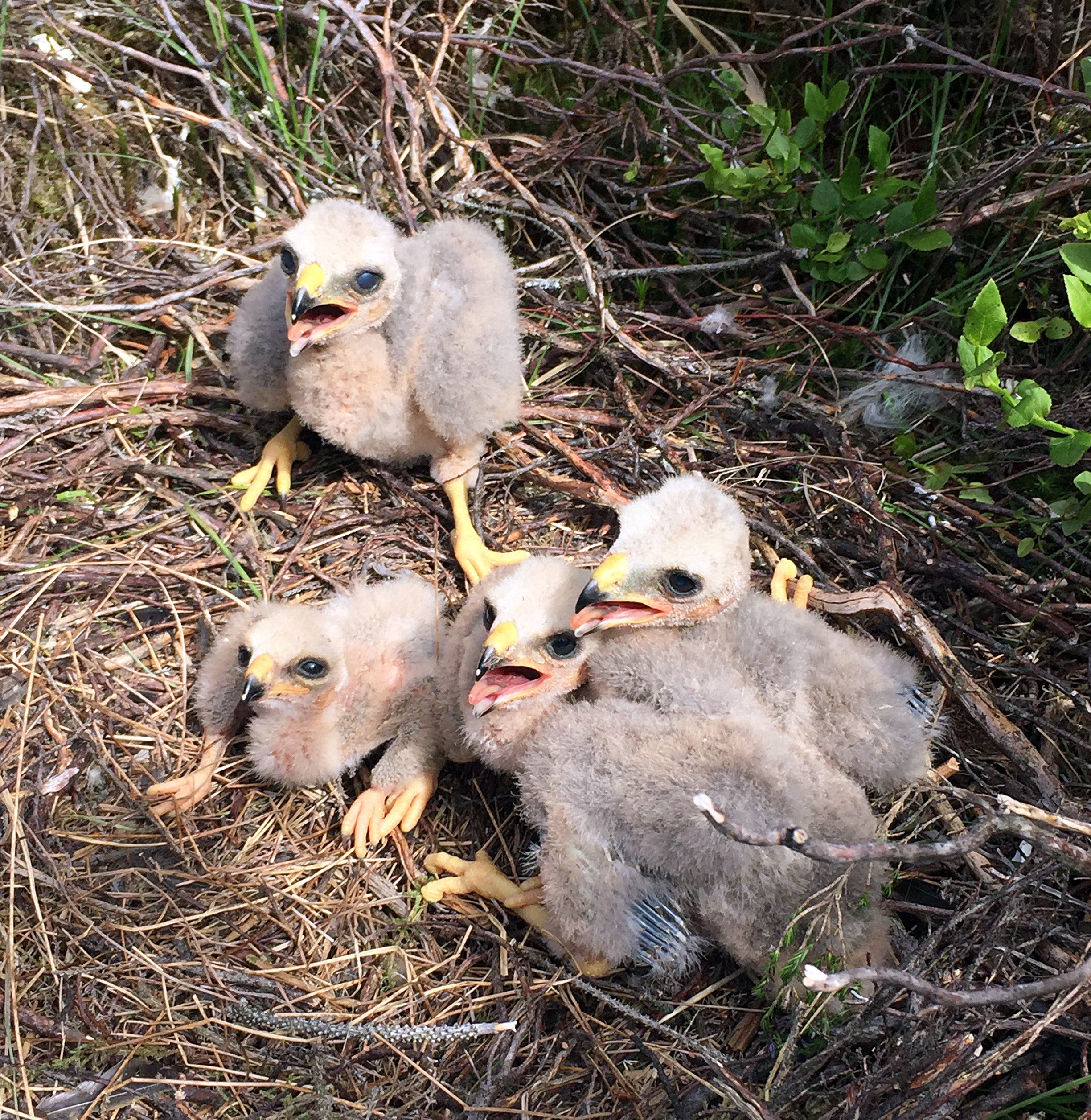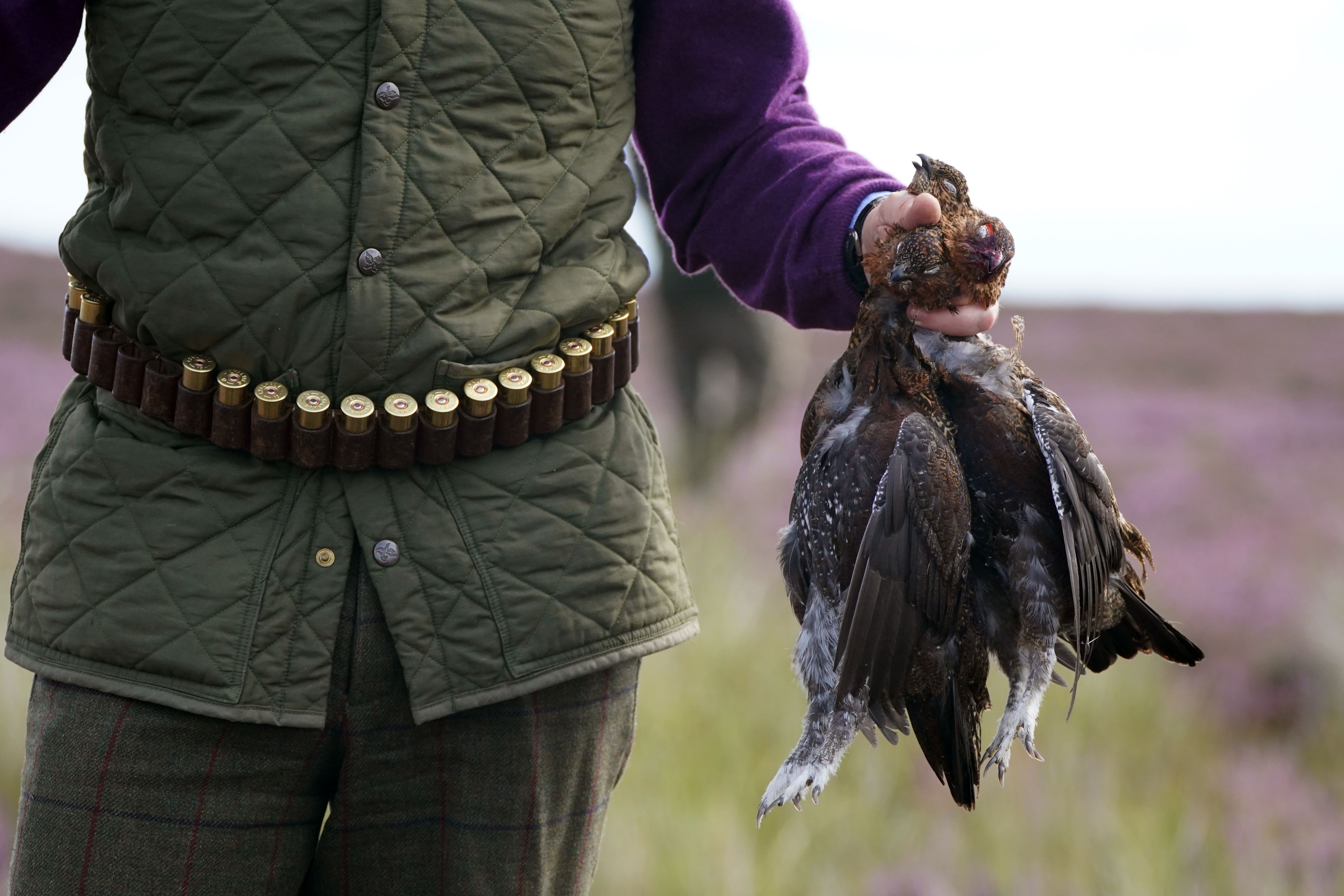Record numbers of hen harriers, one of the UK’s rarest birds of prey, have been killed or gone missing in suspicious circumstances in the past five years, according to the RSPB.
A total of 102 of the protected birds of prey were illegally killed or went missing between 2020 and 2024 – mostly in areas where grouse shooting takes place, the charity says.
Some hen harriers were shot and their chicks were stamped on, while others were poisoned or illegally trapped, the experts say.

In Scotland, grouse moors are licensed, and conservationists have repeatedly pressured Westminster governments to do the same.
When Labour was in opposition, it indicated that it would consider licensing grouse shooting in England.
MPs are due on Monday to debate calls for a ban on driven grouse shooting after a petition launched by campaign group Wild Justice attracted more than 100,000 names.
But in its response, the government said it had no plans for a ban. It said: “Well-managed grouse shooting can be an important part of a local rural economy, providing direct and indirect employment.”
The protected bird species is known for its acrobatic “skydancing” courtship display over the uplands, such as Forest of Bowland in Lancashire and the Yorkshire Dales.
The RSPB’s report, called Hen Harriers in the Firing Line, highlights a strong overlap between their deaths and the extent of grouse moors.

A recent study of illegal killings found that survival rates were unusually low, with birds surviving for an average of just 121 days after leaving the nest.
Persecution accounts for 75 per cent of deaths in birds aged between one and two years.
Hen harriers, a red-listed species, is the most persecuted bird of prey in the UK for its population, and numbers are heading towards local extinction, the wildlife charity says. Numerous studies confirm that illegal killing limits their recovery.
But no one in England has ever been convicted of killing one because most kills happen in remote areas and a criminal burden of proof near-impossible to secure, campaigners say.
James Robinson, of the RSPB, said: “This species will not recover until the criminal activity stops, and for this to happen we need regulation of the grouse shooting industry – specifically the introduction of a licensing system for shoots in England, so estates proven by the police and Natural England to be linked to raptor persecution would lose their licence to operate.”
Andrew Gilruth, chief executive of the Moorland Association, disputed the RSPB report, saying the data has been assembled without independent checks and that the allegations “poison perceptions of gamekeepers”.
The British Association for Shooting and Conservation said the report presented “unproven allegations as evidence”.
Its statement said: “Proposals for a licensing system based on a civil burden of proof risk punishing the law-abiding without due process. Instead, we support constructive, evidence-led solutions such as Natural England’s Hen Harrier Action Plan.”
A Department for Environment, Food and Rural Affairs spokesperson said: «Hen harriers are a rare and precious feature of our national landscapes.
“It’s why through our work with the National Wildlife Crime Unit, the Hen Harrier Taskforce is using innovative technology such as drones and specialised detection dogs to help tackle illegal persecution.”

